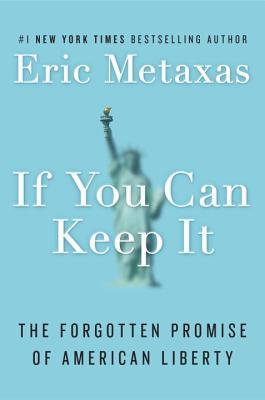What do you think?
Rate this book


272 pages, Hardcover
First published January 1, 2016
So any perceived lack of virtue on the part of our leaders plays a decisive role in undermining the entire enterprise of self-government... in order for self-government to work, citizens must believe that the larger order to which they are giving themselves is essentially trustworthy and solid. They must believe that it's real, that the system works and that their efforts toward self-government matter. They must believe that they really are governing themselves through the leaders they have elected.
Once they think the system is corrupt, or that their leaders and representatives are corrupt, it's nearly impossible for the citizens to feel they are anymore part of an actual system of self-government. They will feel less good about paying their taxes, for fear that their money is being misused. it will also be difficult for them to want to give of themselves in military service, for fear that such service and sacrifice aren't worth the trouble. They will generally become cynical about the whole operation and will slowly pull back and make the end of self-government inevitable.
Corruption in leaders give citizens the sense that they are, in fact, not all in it together. They will get the positively fatal idea that there is indeed an "us" and a "them." At this point the unavoidably central idea that "we the people" are governing ourselves is doomed. The citizens will buy into the deeply pernicious idea that rather than ruling themselves, they are in fact being ruled by others - that all the talk of self-government and liberty is a sham. So they won't work with the government, but will see themselves as dupes of the government and will begin working against it, whether actively or passively. They may be more inclined to cheat on their taxes, or in being less involved in government service, or they may simply stop voting, because they have the idea that the whole thing is somehow rigged against them, so that their vote doesn't matter, and that voting is for suckers. or they may themselves become actively cynical and vote, but not for the best and noblest candidate, but for the candidate who will put the most money in their pockets - for the one who will get them what they want at the expense of the larger enterprise. They will care for themselves more than for the welfare of the country, because they have ceased to take pride in the country or to see it as a real extension of themselves - as indeed "their" country.
So democracy without real patriotism moves toward the destruction of the ordered liberty bequeathed to us by the founders.Favorite point #2: Love is neither criticism or blindness, it's calling out the best in someone:
If I have a son or a daughter or a spouse or a parent or another relative or a friend, I will eventually see things in their behavior that I perhaps perceive as troubling, even as out-and-out wrong. How do I deal with that? There are a few typical ways.
One of them is to home in on those problems by constantly pointing them out and criticizing that person so that the person feels unloved. Another is to be unable to divorce the person from their behavior - to say, in effect, Whatever that person does is correct. If I love them I must accept them 'as they are'" We can hate the sin and hate the sinner or we can love the sin and love the sinner. Both are wrong. There is a third way....
What if we treat someone as though he were the way we wished him to be?... To love someone is to see the best in them and to act toward them as though they were that best. To call them higher. To treat them with respect and love is to call them to be worthy of that respect and that love. And we can say that to love someone is not to avoid seeing their flaws, but to avoid so focusing on them that the person gets a feeling of hopelessness about changing them.